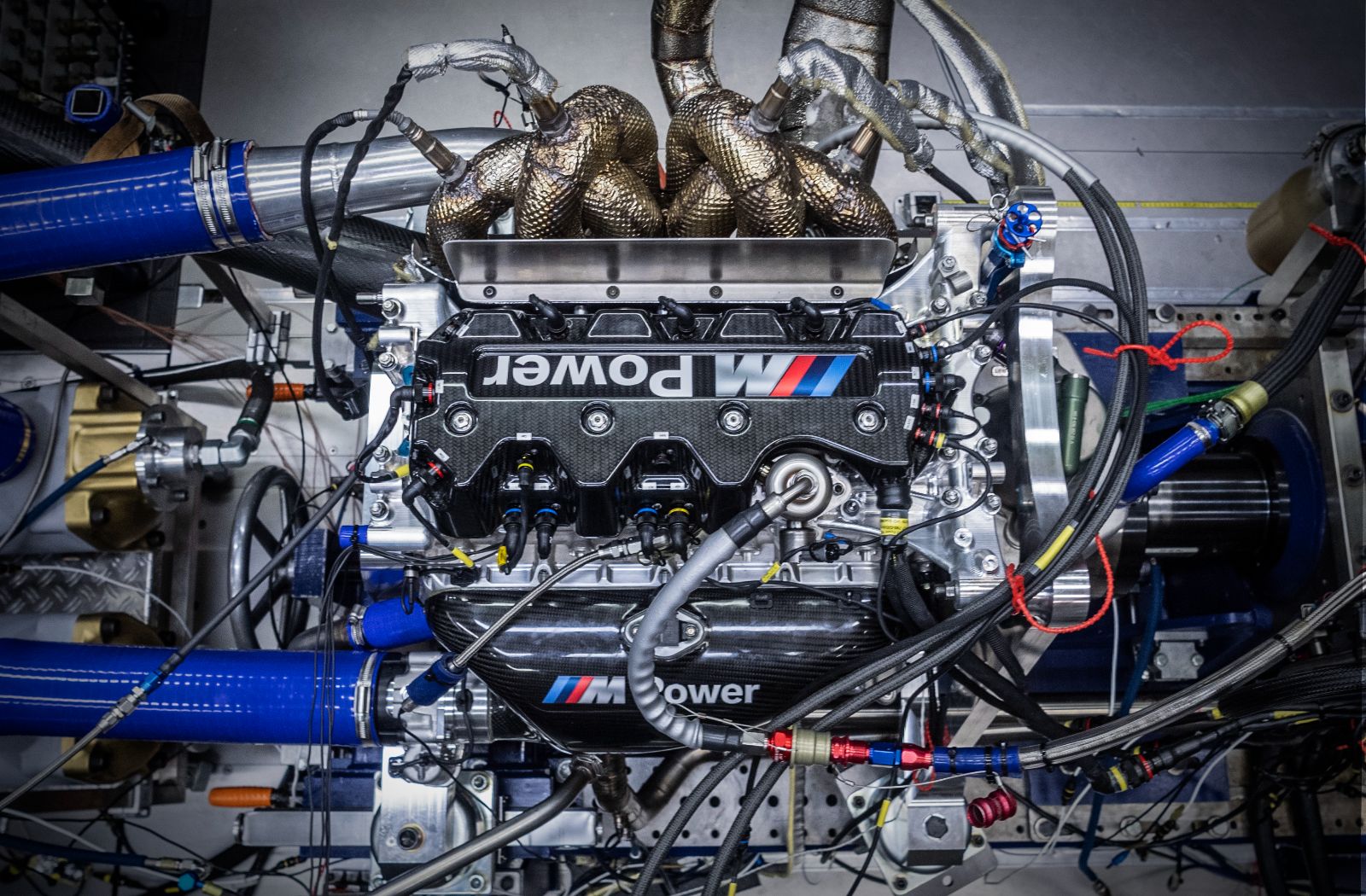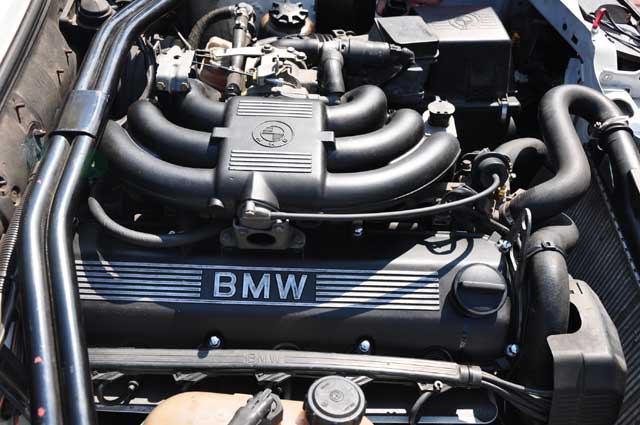Exploring the Efficiency Enhancements of the most recent BMW Engine Designs
Exploring the Efficiency Enhancements of the most recent BMW Engine Designs
Blog Article
Unveiling the Intricacies of Next-Generation Power Units: a Deep Dive Into Advanced Engine Technologies and designs
In the world of automotive design, the relentless pursuit of performance, efficiency, and sustainability has thrust the advancement of power systems to unprecedented elevations. As we depend on the precipice of a new era in transportation, the complexities of next-generation engine designs beckon us to discover the cutting-edge innovations and innovations that assure to redefine the driving experience. From innovative materials that push the limits of longevity and weight decrease to advanced turbocharging and supercharging systems that boost power outcome to brand-new levels, each part of these power systems holds an essential to opening the future of automotive engineering. Diving deeper right into the worlds of emission control, smart engine monitoring systems, and the horizon of power unit growth, we discover ourselves on the cusp of a change that promises to improve the landscape of flexibility as we understand it.
Advancement of Engine Materials

The shift towards progressed engine materials has likewise made it possible for designers to design engines with higher power results while keeping gas performance standards. As an example, the usage of light-weight products lowers the overall weight of the engine, resulting in enhanced gas economic climate and lower discharges. Furthermore, advancements in products modern technology have actually permitted for far better thermal monitoring within engines, leading to enhanced integrity and long life.
Turbocharging and Supercharging Technologies
Just How do Turbocharging and Supercharging Technologies reinvent engine performance and efficiency in modern cars? Turbo charging and turbocharging are modern technologies that substantially improve engine efficiency by raising the quantity of air intake right into the combustion chamber. Turbocharging attains this by making use of a turbine driven by exhaust gases to pressurize the consumption air, while supercharging makes use of a belt- or chain-driven compressor to accomplish the same result.
These modern technologies allow smaller, a lot more fuel-efficient engines to produce power comparable to bigger ones, called downsizing. Forcibly more air right into the cylinders, supercharging and turbocharging boost combustion performance, resulting in increased horsepower and torque result without a substantial increase in engine size. This brings about much better velocity, towing capability, and total driving performance.
Additionally, supercharging and turbocharging add to boosted fuel effectiveness by permitting the use of smaller engines that take in much less fuel under normal driving problems - bmw engine. This mix of boosted performance and effectiveness has actually made turbocharging and supercharging important parts of numerous modern engine styles
Discharge Control and Environmental Influence
With increasing worldwide problems regarding air high quality and ecological sustainability, the implementation of exhaust control technologies in cars plays a crucial role in minimizing unsafe toxins launched right into the ambience. Modern vehicles are equipped with sophisticated emission control systems that help minimize the environmental impact of automotive operations. Catalytic converters, as an example, are designed to transform poisonous gases such as carbon monoxide gas, nitrogen oxides, and hydrocarbons right into much less dangerous materials like co2 and water vapor.
Moreover, improvements in engine innovation, such as the combination of exhaust gas recirculation systems and careful catalytic reduction, have considerably contributed to lowering emissions. These technologies operate in tandem to maximize burning effectiveness and lessen the release of dangerous contaminants into the air. Furthermore, the development of hybrid and electric lorries represents an essential step towards lowering the total ecological impact of the transportation sector.
Intelligent Engine Management Equipment

Furthermore, these systems allow vehicles to fulfill strict exhausts requirements without endangering performance, giving a more eco-friendly driving experience. The assimilation of expert system and machine discovering capabilities in engine administration systems proceeds to push the limits of what is feasible, resulting in more improvements in effectiveness, integrity, and overall automobile efficiency. bmw engine. As automobile innovation advances, intelligent visit engine monitoring systems will certainly play an important duty fit the future of transportation in the direction of an extra effective and lasting instructions
Future Trends in Power Unit Advancement
As smart engine management systems lead the means for enhanced control and optimization in modern-day lorries, future trends in power unit growth are positioned to redefine the landscape of automobile propulsion innovations. One of the essential patterns driving development in power system development is the shift towards electrification. With an enhancing emphasis on sustainability and lowering carbon exhausts, crossbreed and electrical find this powertrains are coming to be more prevalent in the automotive industry. These alternative source of power provide improved efficiency and performance while aligning with stringent environmental policies.
One more significant trend is the assimilation of sophisticated materials and manufacturing methods. Light-weight products such as carbon fiber and aluminum are being utilized to lower general car weight, enhancing gas effectiveness and performance. In addition, improvements in 3D printing and additive manufacturing are enabling the manufacturing of complex engine parts with higher precision and durability.
In addition, expert system and maker knowing are playing an essential duty in enhancing power unit efficiency. These innovations permit real-time tracking and adaptive control, causing much more reliable and trustworthy power delivery. Generally, future trends in power device advancement are geared in the direction of efficiency, efficiency, and sustainability, driving the auto industry in the direction of a brand-new age of propulsion modern technologies.

Final Thought
To conclude, the advancements in engine materials, turbocharging, emission control, and intelligent monitoring systems have actually led the way for next-generation power systems. These developments have not just improved efficiency and efficiency however additionally decreased ecological impact. As innovation proceeds to develop, future fads in power unit advancement are most likely to concentrate on further improving sustainability and maximizing power output. The complex layouts and developments in contemporary engines display the ongoing development of automobile innovation.
Discovering the progressive advancements in engine materials has anonymous been critical in improving the performance and effectiveness of contemporary engines. Over the years, the development of engine materials has played a vital duty in pressing the limits of what engines can accomplish.The change in the direction of advanced engine materials has also enabled engineers to create engines with greater power outcomes while preserving fuel efficiency requirements.The application of intelligent engine management systems in modern cars has transformed the method engines are managed and enhanced for performance and effectiveness. By collecting data in real-time and evaluating it with sophisticated algorithms, smart engine monitoring systems can adjust to driving styles, environmental variables, and engine wellness to take full advantage of power outcome while reducing fuel usage and discharges.
Report this page